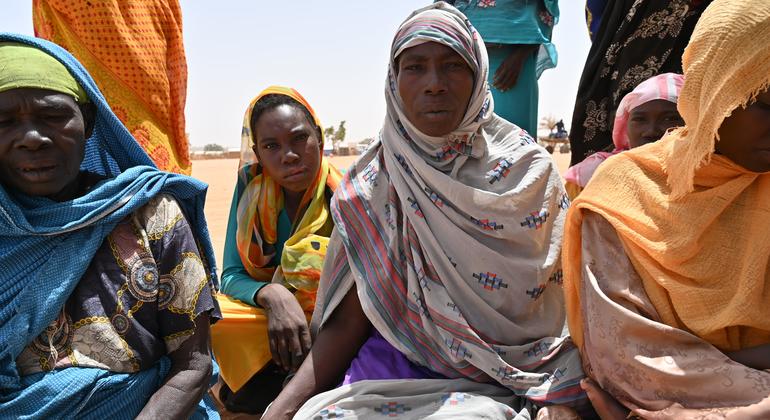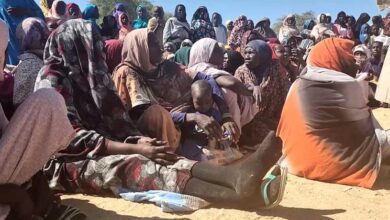Sudan’s mix of war and floods leaves people trapped, unable to flee

To provide life-saving aid to those forced to leave Sudan, the Office of the United Nations High Commissioner for Refugees (UNHCR)United Nations High Commissioner for Refugees), revised its initial $1.4 billion offering to $1.5 billion.
The funding will support and protect up to 3.3 million people forced to flee violence and “near-famine conditions” over the next six months, said Ewan Watson, the UN agency’s head of global communications.
“As horrifying as it is, it is not just famine but also a brutal violation of human rights.It is about the flooding that is predicted to be the worst in years this year, and not only hindering the delivery of humanitarian aid but also leaving people stranded where they are with little aid and no way to flee.”

A woman and her daughter are among 180,000 Sudanese refugees waiting to be relocated from a border area in eastern Chad.
Fleeing the brutal war
The war in Sudan began 14 months ago when rival armies, the Sudan Armed Forces (SAF) and the Rapid Support Forces (RSF), clashed following rising tensions over the transition to civilian rule.
Thousands of people are leaving Sudan “every day, fleeing brutal violence and abuse, death, disrupted services, limited access to humanitarian aid” and looming famine, according to UNHCR.
Looting and lawlessness
Echoing those concerns, the United Nations Office for the Coordination of Humanitarian Affairs (OCHA), said tens of thousands of people have been displaced in recent days following clashes between the SAF and RSF in Sinja, in the southeastern Syrian state of Sennar.
“There were reports that armed men ransacked and looted homes, shops and occupied government buildings.“, spokeswoman Vanessa Hugenin said.
She further highlighted unrest in Abu Hujar and nearby Ad Dali, noting that the majority of those displaced by the violence were moving east to neighboring Gedaref state.
“We and our humanitarian partners in Gedaref are preparing to receive people displaced by conflict in Sinja, with enough food and nutrition to meet the needs of tens of thousands of people,” she said.

Many families fled to the relative safety of Port Sudan.
Forced to cut food rations
With the additional funding, UNHCR plans to increase support to refugees and host communities in the Central African Republic, Chad, Egypt, Ethiopia, Libya, South Sudan and Uganda.
To date, only 19 percent of the funds needed for UNHCR’s refugee response have been received, meaning Food rations had to be “drastically cut”, Mr. Watson said.
In the Central African Republic, for example, 24,000 refugees “remain without any form of humanitarian aid,” while 180,000 new arrivals in Chad are still waiting to be relocated from the border area, he noted.
In Egypt, nearly 75,000 refugee children are out of school, while in South Sudan, refugee camps and settlements are severely overcrowded.
“Neighbouring countries have shown great solidarity in welcoming those fleeing war, but Services in host communities remain overwhelmed, making it very difficult for refugees to access them. to stabilize their lives, earn a living and rebuild their lives,” said Mr. Watson.
Since the conflict began, 10 million people have fled their homes in Sudan, many multiple times in search of safety. Of these, nearly two million have fled to neighbouring countries, with 7.7 million newly internally displaced and 220,000 internally displaced refugees.




